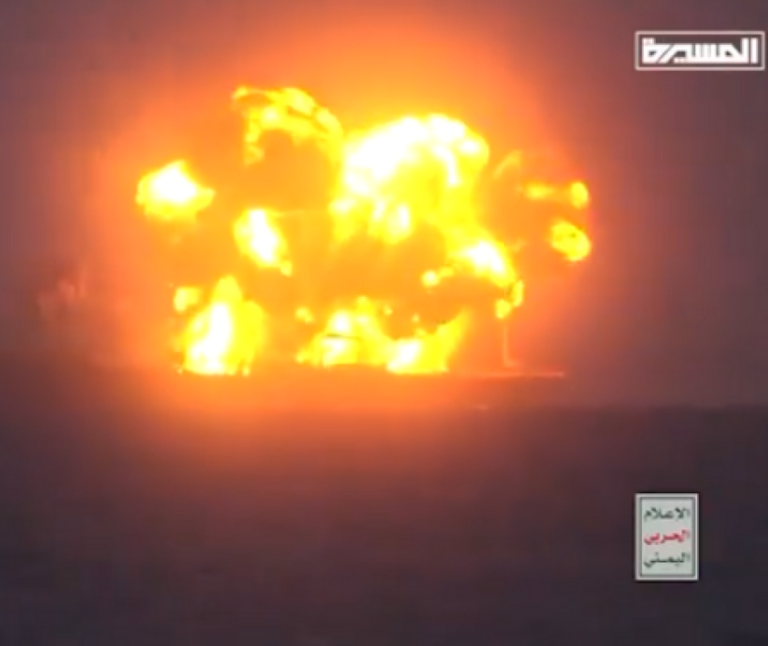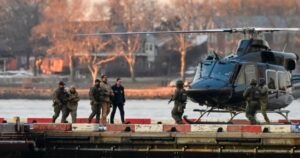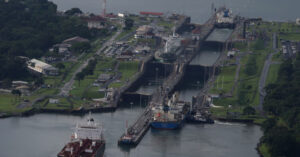The Minister of National Defence, Nikos Dendias, had a telephone conversation with the Vice-President of the European Commission and High Representative of the European Union, Nikos Dendias. European Commission Vice-President and EU High Representative for Foreign Affairs and Security Policy, Joseph Borel.
“We discussed the assistance of Operation ASPIDES in the safe towing of the tanker MV Sounion and the prevention of an environmental disaster,” Dendias wrote on his personal “X” account.
The Houthis are agreeable to declaring a truce to tow the Sounion tanker to a safe port, Iran assures
The rebels Houthi Yemeni rebels are agreeing to a “temporary ceasefire” to tow a Greek-flagged tanker they attacked to a safe port, as concern is expressed over ecological damage in the Red Sea, Iran’s diplomatic mission to the UN asserted yesterday (Wednesday), but a spokesman for the movement was quick to clarify that a ceasefire was not declared by the movement, but merely a decision was made to allow a tow operation to take place.
The Greek-flagged Sounion was hit repeatedly last week off the rebel-controlled port of Hodeidah in the Red Sea. The Iranian-backed Houthis claimed responsibility, saying they hit it with drones and missiles.
The UKMTO, the British navy-led maritime safety agency, then claimed three fires on board the tanker, while the Houthis released a video via social media sites showing what they said were three explosions on board the vessel, which was carrying 150,000 tonnes of crude.
“Many parties” have asked the Houthis for a “temporary ceasefire to allow tugs and rescue ships to come to the area” where the tanker is anchored, the Iranian permanent delegation to the United Nations noted yesterday.
“Taking into account humanitarian and environmental concerns, Ansar Allah (ed. ‘Supporters of God’, the name of the movement also known by the surname of its leaders’ family, the Houthis) accepted this request,” it added.
However, the failure to conduct an operation to “tow the ship” and prevent an “oil spill in the Red Sea” was due to “the negligence of some countries rather than the concern that (their ships) would be targeted” in turn, the Iranian mission to the UN further claimed.
Moreover, the rebels “have already announced that they will continue – as long as the war in Gaza continues – to target tankers in the Red Sea with oil destined for the Israeli regime,” the Islamic Republic’s delegation to the United Nations stressed.
The 25-member crew of the Sounion, which consisted of 23 Filipino nationals and 2 Russian nationals, was rescued by a ship of the European Union’s Maritime Shields mission last week.
The mission warned, however, that the ship, anchored between Yemen and Eritrea and now without a crew, posed a “risk to navigation and the environment.”
The day before yesterday, Tuesday, the US Department of Defense stressed that there appears to be an oil leak from the vessel and an oil spill has formed.
The European naval mission Shields is “considering” taking protective measures and “towing the ship” to a safe port, its commander Rear Admiral Vassilios Gryparis informed yesterday. He added that the mission has not found any fuel leakage from the tanks.
He stressed that for the tow to take place “cooperation with all the countries of the region and their active participation” in the project is required, always in accordance with the European mission.
Greek Defence Minister Nikos Dendias discussed in parallel yesterday by phone with EU High Representative Giuseppe Borel by telephone “the assistance” of the European force “in the safe towing of the tanker (…) and the prevention of environmental damage,” the former said via X.
The Red Sea and the Gulf of Aden have since November 2023 become a ground of repeated attacks by Yemenite rebels, who say they are launching them in solidarity with the Gaza Strip, where the war between Israel and Hamas that broke out on October 7 continues to rage.
In March, the Belize-flagged Rubymar ship, which was hit by Houthis, was sunk along with its cargo – 21,000 tonnes of fertiliser.
Several sailors have been killed or seriously injured in these attacks, now considered a major problem for navigation in the waters around Yemen, a maritime area vital to world trade.
Ask me anything
Explore related questions





